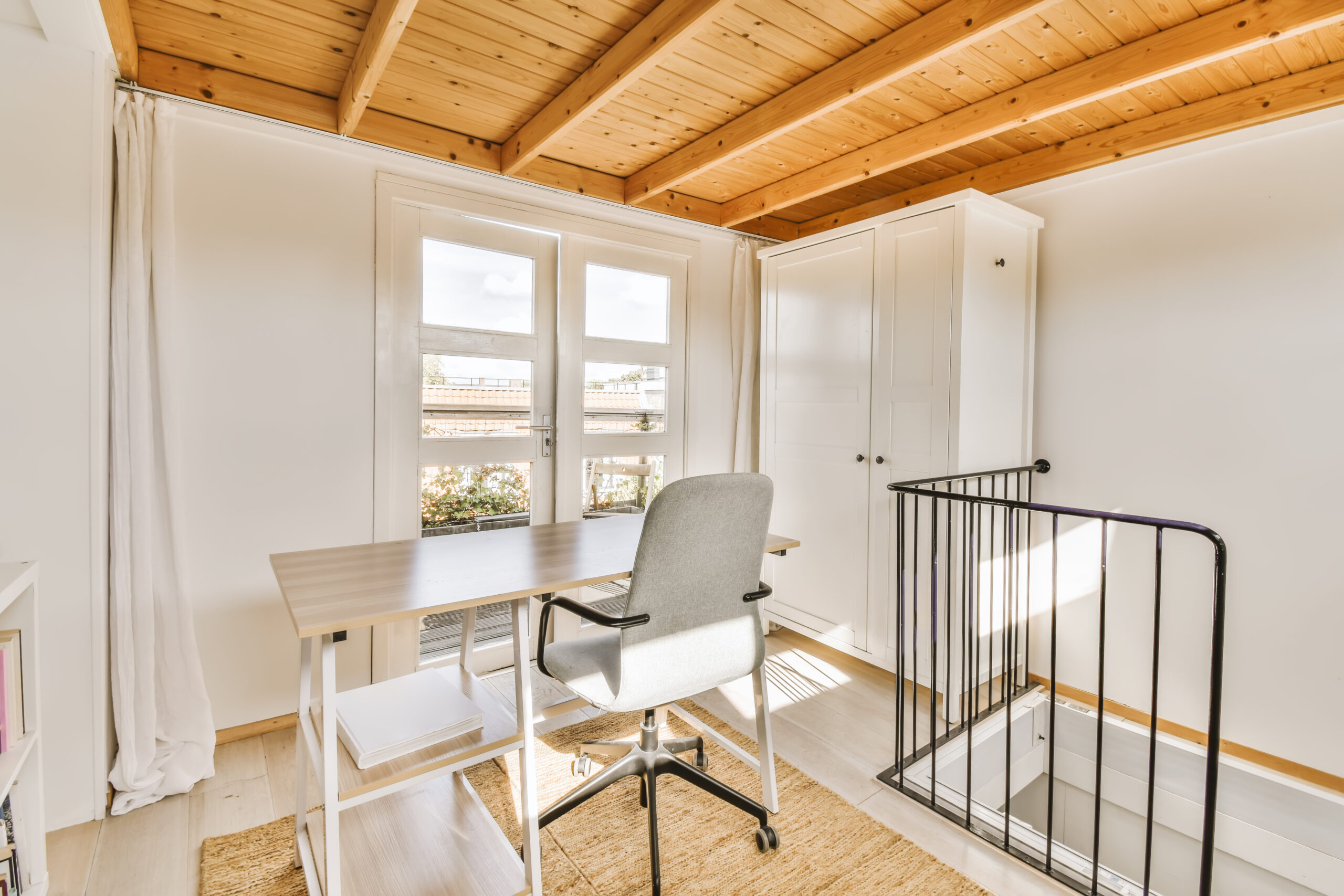The shift towards remote work has been a significant trend across the United States, and Tucson is no exception. As more companies adopt flexible work policies, the demand for home office spaces has grown, influencing the way people in Tucson design and utilize their residential spaces. This shift has been particularly notable in the context of tiny homes, where efficient use of space is crucial.
Remote work has become a major factor in how people choose and design their living spaces. In Tucson, the need for dedicated home office spaces is increasingly important as more residents work from home. Local studies have shown a significant rise in remote work, with many residents opting to create functional workspaces within their homes. This trend aligns with national patterns, as discussed in this article on remote work trends in the U.S..
Designing an Efficient Home Office in a Tiny Home
Creating an efficient home office in a tiny home requires careful planning and design. The key is to maximize space and functionality without compromising on comfort or aesthetics. Practical design ideas include using multi-functional furniture, such as desks that double as dining tables or shelves that serve as room dividers. Creative storage solutions, like vertical shelving and under-desk drawers, can help keep the workspace organized and clutter-free.
In Tucson, several tiny home projects have successfully integrated home offices into their layouts. These designs often feature compact desks, ergonomic chairs, and smart storage solutions that utilize every inch of available space. By focusing on both functionality and style, these projects demonstrate that it’s possible to create a productive work environment in even the smallest of homes.
Ergonomic Furniture Choices for Comfort and Productivity
Ergonomic furniture is essential for creating a comfortable and productive home office environment. Prolonged sitting can lead to physical strains, making it important to choose furniture that supports good posture and reduces discomfort. Essential ergonomic items include adjustable chairs, desks at the correct height, and keyboard trays that prevent wrist strain.
Selecting furniture that fits the scale and style of a tiny home office is crucial. Compact, adjustable desks and chairs with a minimalist design can help maintain the aesthetic of a small space while providing the necessary ergonomic support. For more information on the benefits of ergonomic furniture, check out this.
Soundproofing Tips for a Professional Home Office Environment
Noise can be a significant challenge in a home office setting, especially in smaller homes. Effective soundproofing is essential for maintaining focus and productivity. Acoustic panels, thick rugs, and heavy curtains can help reduce noise levels. These solutions are not only practical but also easy to implement in a tiny home.
DIY soundproofing techniques can be cost-effective and simple. Adding weather stripping to doors and windows, using draft stoppers, and placing bookshelves against shared walls can all contribute to a quieter work environment. By addressing noise issues, remote workers can create a more professional and productive home office space.
Balancing Aesthetics and Functionality in Home Office Design
Balancing aesthetics with functionality is important in home office design. A well-designed workspace should not only be practical but also visually appealing. Color schemes and decor can significantly impact productivity and mood. For instance, calming colors like blue and green can enhance focus, while personal touches can make the space more inviting.
Personalizing the workspace allows individuals to reflect their tastes while maintaining a professional atmosphere. Thoughtfully chosen decor and organization solutions can make a home office a pleasant place to work. Additionally, a well-designed home office can increase property value and appeal, making it a worthwhile investment for homeowners.
The Future of Home Offices in Tucson’s Real Estate Market
The growing demand for home offices is likely to influence Tucson’s real estate market. As more people prioritize having a dedicated workspace at home, properties with office spaces may become more desirable. This trend could lead to changes in home buying preferences, with buyers seeking homes that accommodate remote work.
Local builders and architects in Tucson are already adapting to this demand by incorporating home offices into new constructions and renovations. Accessory Dwelling Units (ADUs) offer additional opportunities for creating home offices, providing flexible and functional spaces for remote work. As the trend towards remote work continues, the integration of home offices in Tucson’s real estate market is expected to grow, reflecting the changing needs of modern homeowners.


